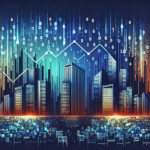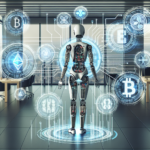The Rise of AI in Financial Markets
The Expanding Role of Machine Learning
Machine learning has become a game changer in the field of automated trading. Through the use of sophisticated algorithms, traders can analyze massive amounts of data at lightning speed. This not only increases efficiency but also allows for a more nuanced understanding of market dynamics. As machine learning models evolve, we can expect them to become even more adept at predicting market shifts by identifying patterns that human traders might overlook.
<h4-Predictive Analytics in Trading
Predictive analytics is set to enhance trading strategies significantly. By leveraging historical data and real-time information, traders can forecast potential market movements more accurately. Algorithms that employ deep learning can analyze vast datasets, including social media sentiment, economic indicators, and news articles, to gauge future trends. Such capabilities will allow traders to position themselves advantageously ahead of market developments.
<h5-Behavioral Analysis
Behavioral finance has gained traction alongside machine learning, as algorithms that incorporate behavioral data can provide deeper insights. By analyzing how market psychology and human emotions influence trading decisions, AI can assist traders in making decisions that align with market sentiment. For instance, if social media sentiment shows heightened anxiety about a particular stock, automated trading systems can react appropriately, adjusting positions to mitigate risk.
<h3-Enhanced Risk Management
One key trend in AI and automated trading is the ongoing improvements in risk management processes.
<h4-Real-Time Risk Assessment
AI can analyze trades and market conditions in real-time, providing traders with immediate feedback about potential risks. Advanced algorithms can establish risk metrics by continuously evaluating volatility, liquidity, and market sentiment. This ensures that traders can act swiftly to protect their investments before losses occur.
<h5-AI in Compliance and Regulation
Regulatory requirements are becoming more stringent globally. AI technologies can help ensure compliance with trading regulations, monitoring trades to guarantee that they adhere to legal requirements. By utilizing AI for compliance, firms can mitigate the risk of penalties, creating a safer trading environment for all market participants.
<h2-The Role of Decentralized Finance (DeFi)
The rise of decentralized finance is reshaping how automated trading strategies are devised. DeFi platforms that utilize blockchain technology provide transparency and efficiency unmatched by traditional financial systems.
<h3-Smart Contracts
Smart contracts can be programmed to execute trades automatically under certain conditions. This automation enhances trust and reduces the likelihood of human error. Investors can utilize AI algorithms to create complex trading strategies that leverage smart contracts, allowing trades to be executed seamlessly once predetermined criteria are met.
<h4-Impact on Liquidity and Efficiency
DeFi is designed to improve liquidity in trading markets. Automated trading systems can tap into extensive liquidity pools, allowing for rapid execution of trades without significant slippage. When liquid markets interact with high-frequency trading algorithms powered by AI, the overall efficiency of transactions increases, benefiting traders seeking the best price.
<h3-Cross-Asset Trading Strategies
DeFi opens the door for cross-asset trading opportunities, allowing traders to develop strategies that leverage multiple asset classes simultaneously. AI-powered trading systems can automatically adjust positions across various markets, such as cryptocurrencies and equities, based on real-time data and analytics.
<h2-The Integration of Emotional Intelligence in Trading Algorithms
As AI continues evolving, incorporating emotional intelligence into trading systems presents an emerging trend.
<h3-Understanding Market Sentiment
Market sentiment can significantly influence price movements. AI algorithms that analyze news articles, social media posts, and other public data can develop a keen understanding of market psychology. By integrating this emotional intelligence, traders can create systems that respond more effectively to swings in sentiment, making them more resilient during market volatility.
<h4-Improving Decision-Making Processes
Emotionally intelligent trading algorithms can lead to better decision-making by considering the psychological factors at play within the markets. By understanding when market participants are motivated by fear, greed, or optimism, these algorithms can avoid typical pitfalls and take positions that align with overall market sentiment.
<h5-Adaptive Learning Models
Adaptability will become crucial in the evolution of emotional intelligence in AI algorithms. As markets change and adapt, so too must trading systems. Algorithms that learn from ongoing market behavior, adjusting their strategies based on recent trends and sentiment shifts, will become vital tools for traders seeking to optimize their performance.
<h2-Ethical Considerations in AI and Trading
As we witness rapid advancements in AI and automated trading, ethical considerations must not be overlooked.
<h3-Algorithmic Bias
One of the most pressing concerns is the potential for bias in AI algorithms. If these systems are trained on flawed or unrepresentative data, they may perpetuate existing biases in trading, leading to unequal opportunities and market inefficiencies. Continuous monitoring and refinement of algorithms are necessary to ensure equitable outcomes.
<h4-Transparency in Automated Systems
Transparency is vital as AI becomes more prevalent in trading. Traders need to understand how algorithms make decisions, allowing them to have confidence in the systems. Creating frameworks for greater transparency can help users grasp how their trades are being influenced, ultimately fostering trust within the ecosystem.
<h5-Responsible AI Usage
With great power comes great responsibility, particularly in finance. Automated trading systems must be deployed responsibly, keeping in mind the potential impacts on market stability. Traders, regulators, and technology developers need to collaborate to establish best practices that promote ethical AI usage, minimizing the risk of unintended consequences that could affect markets globally.
<h2-The Future of Human and AI Collaboration
As technologies continue to evolve, the relationship between human traders and AI systems will become increasingly synergistic.
<h3-Augmenting Human Decision-Making
Rather than replacing human traders, AI has the potential to augment their capabilities. By providing insights derived from analysis and data, AI can help traders make more informed decisions, combining human intuition with machine intelligence.
<h4-Skills Development for Traders
Traders will need to adapt to the changing landscape by developing new skills that complement AI technology. Understanding how to effectively interpret data and leverage AI insights will be crucial. As a result, upskilling initiatives will gain prominence, creating a new generation of traders equipped for a tech-driven financial world.
<h5-Creativity in Strategy Development
As traders work alongside AI, creativity in strategy development will be essential. The human ability to think outside the box, recognize unconventional patterns, and adapt to unforeseen circumstances will remain invaluable. While AI can process data and identify trends, human ingenuity will drive innovative trading strategies and responses.








